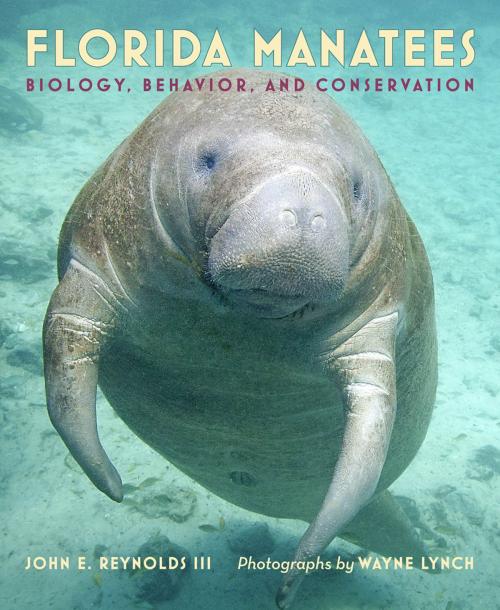Florida Manatees
Biology, Behavior, and Conservation
Nonfiction, Science & Nature, Science, Biological Sciences, Marine Biology, Biology| Author: | John E. Reynolds III | ISBN: | 9781421421926 |
| Publisher: | Johns Hopkins University Press | Publication: | April 25, 2017 |
| Imprint: | Language: | English |
| Author: | John E. Reynolds III |
| ISBN: | 9781421421926 |
| Publisher: | Johns Hopkins University Press |
| Publication: | April 25, 2017 |
| Imprint: | |
| Language: | English |
Manatees, the gentle giants of Florida's lagoons and coastal habitats, can bring a smile to the face of anybody lucky enough to spy one. As manatees dip and roll through the water, crowds gather to watch them feed on aquatic vegetation. Whether they are congregating by the hundreds or resting or feeding alone, viewing these sea cows can provide anyone interested in nature with hours of tranquil pleasure.
Having survived for eons, today's manatees are now under constant threat due to our rapidly swelling human population. Their habitats are often devastated by development and pollution. The slow-moving manatees also live at the mercy of chance, for they occupy waters filled with fast-moving boats powered by razor-sharp propellers—a new form of predator from which they have no protection. Boat speed limits have been put in place to protect manatees, but there is a constant push to lift them so that people can once again zip across the waters that manatees call home. For this reason, manatees are often a subject of controversy that pits their lives against the rights of boat owners.
In this book, manatee expert John E. Reynolds III and famed photographer Wayne Lynch join forces to reveal the clearest portrait of manatees ever published. Florida Manatees is a song for the manatee, a celebration of the lives of these majestic creatures. Reynolds's concise, informative text shares what scientists know about manatees, while Lynch's beautiful photographs instantly demonstrate how special these "potatoes with whiskers" really are. By encouraging an appreciation of manatees, the authors hope to help ensure a future in which Floridians can find ways to coexist with and continue to enjoy these uniquely wonderful sirenian inhabitants of their state.
Included in this book:
How manatees first came to Florida waters
How manatees fit into the ecosystems of Florida
What and how much manatees eat
How manatees behave and communicate with one another
Why manatees look the way they do
Why manatees have whiskers
How manatee mothers feed their young and much more
Manatees, the gentle giants of Florida's lagoons and coastal habitats, can bring a smile to the face of anybody lucky enough to spy one. As manatees dip and roll through the water, crowds gather to watch them feed on aquatic vegetation. Whether they are congregating by the hundreds or resting or feeding alone, viewing these sea cows can provide anyone interested in nature with hours of tranquil pleasure.
Having survived for eons, today's manatees are now under constant threat due to our rapidly swelling human population. Their habitats are often devastated by development and pollution. The slow-moving manatees also live at the mercy of chance, for they occupy waters filled with fast-moving boats powered by razor-sharp propellers—a new form of predator from which they have no protection. Boat speed limits have been put in place to protect manatees, but there is a constant push to lift them so that people can once again zip across the waters that manatees call home. For this reason, manatees are often a subject of controversy that pits their lives against the rights of boat owners.
In this book, manatee expert John E. Reynolds III and famed photographer Wayne Lynch join forces to reveal the clearest portrait of manatees ever published. Florida Manatees is a song for the manatee, a celebration of the lives of these majestic creatures. Reynolds's concise, informative text shares what scientists know about manatees, while Lynch's beautiful photographs instantly demonstrate how special these "potatoes with whiskers" really are. By encouraging an appreciation of manatees, the authors hope to help ensure a future in which Floridians can find ways to coexist with and continue to enjoy these uniquely wonderful sirenian inhabitants of their state.
Included in this book:
How manatees first came to Florida waters
How manatees fit into the ecosystems of Florida
What and how much manatees eat
How manatees behave and communicate with one another
Why manatees look the way they do
Why manatees have whiskers
How manatee mothers feed their young and much more















